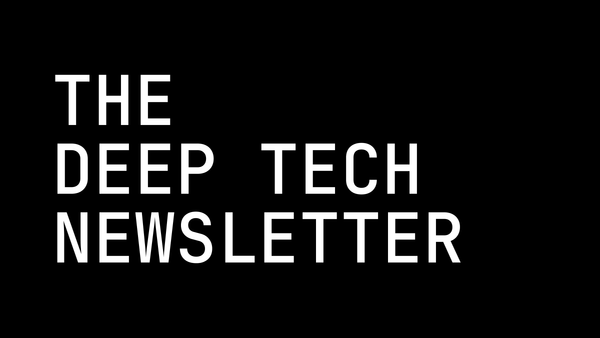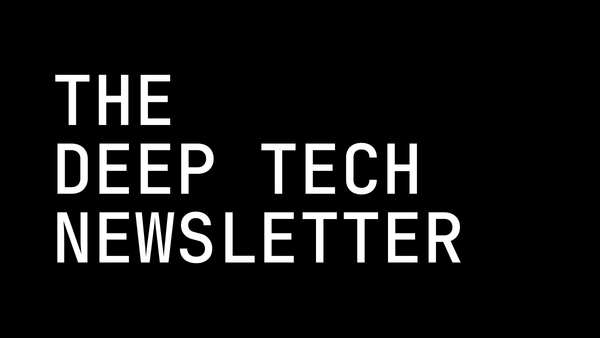The venture capital evolution with Prime Movers Lab’s Gavin Mathis
Gavin Mathis is chief of staff and platform partner at Prime Movers Lab, a venture capital firm that invests in breakthrough startups.
Gavin Mathis is chief of staff and platform partner at Prime Movers Lab, a venture capital firm that invests in breakthrough startups.

How did you start investing in breakthrough scientific startups?
Prime Movers Lab founder and general partner Dakin Sloss recognized that a major shift in startup investing needed to occur back in 2018. So much venture capital (VC) funding was going into SaaS, fintech, and consumer startups that weren’t advancing society in any meaningful way. At the time, I was working for a tech PR agency helping founders at many of these SaaS, fintech, and consumer startups prepare for IPOs. I slowly reached the same conclusion as Dakin, and I wanted to focus my efforts on helping founders who were making advances in nuclear fusion, semiconductors, and regenerative medicine rather than just helping a sales software platform find new customers. So I joined Prime Movers Lab in 2021.
At Prime Movers Lab, we believe breakthrough science is needed to transform billions of lives in sectors like energy, transportation, infrastructure, manufacturing, agriculture, and human augmentation. In the coming two decades, almost every layer of our physical world will be reshaped. I believe the best venture capital investors will increasingly focus on breakthroughs like nuclear energy, AI infrastructure, semiconductors, neuroscience, and energy storage. These investors are also going to contribute massively to creating a better world for generations to come.
What makes Prime Movers Lab unique among investment firms writing checks for breakthrough scientific startups?
We like to say, “The least useful thing we provide is capital.” Each partner is very active on company boards to ensure milestones are reached and tough governance decisions are being made. As our platform partner, I work with founders to make their voices heard in Washington, D.C., execute public relations opportunities, and raise additional financing. In today’s funding climate, these services are more important than ever because startups are figuring out how to accomplish more with less and are turning to their investors for help. Investors need to find ways to provide value beyond the capital they’re investing.
Can you elaborate on Prime Movers Lab’s “integrated coaching” approach and how it helps transform scientists into successful executives?
We focus on investing in “Prime Movers” – founders who value growth and building something that contributes to society. We believe that if you help a company’s leader grow, you help the company grow. To make that happen, the firm provides executive coaching to help founders/CEOs remove any limiting beliefs keeping them from achieving their or the company’s true potential.
How do you identify the innovations that are worth cultivating as companies and what length of timeline do you work to?
We spend a lot of time landscaping and working with technical advisors to build a roadmap that charts the innovations that we think will occur between now and 2050. Granted, that is a long time horizon that doesn’t sync perfectly with fund cycles, but it helps us focus our attention on actual breakthroughs rather than just following every hype cycle like most investors. For example, we’ve been far more focused on the picks and shovel plays (semiconductors, energy infrastructure, etc.) that are enabling AI rather than just backing every large language model out there—that we feel are massively overvalued—like some investors are doing.
We also want to make sure the timing is right. We want to know: Why is this breakthrough going to work now versus three years ago or three years from now? Is it the technical insight? Does something now exist that didn’t before? Is it a change in costs or public policy? There are a lot of VCs out there with battle scars from the last cleantech bubble so we’re very mindful of timing.
Lastly, we make sure the scientific risk has been greatly reduced. Prime Movers Lab does not back science projects. We learn what major technical risks have been conquered and what the founders think are the biggest engineering risks remaining.
At HAUS, we believe that the best technology doesn’t always win and that the way a technology is communicated plays a massive role in the outcome of a startup, particularly in deep tech. Is this your experience?
Absolutely. If a founder can’t explain the breakthrough and how it will become reality, they will struggle. They will struggle to raise money, recruit, and get media attention. Helping founders effectively tell their stories to media, government officials, and other investors is probably the most important thing I can do.
Sometimes, after we pass on a deal, I wonder if I missed a true breakthrough because I couldn’t wrap my head around the technology. However, instead of thinking that way, I’ve learned to trust my gut. That founder could not effectively communicate what they are doing, and they will have that problem at numerous inflection points down the road – not just with me – and that will hinder his/her ability to be successful. Therefore, I’ve learned not to second-guess myself as much as I previously did.
The Prime Movers Lab roadmap mentions several sectors like energy, transportation, and human augmentation. How does Prime Movers Lab prioritize investments across these diverse fields?
We work to diversify our portfolio across six sectors (energy, transportation, human augmentation, manufacturing, infrastructure, and agriculture). Some funds do end up being slightly more weighted into a couple of these sectors depending on deal flow and current technology trends, but we work very hard to find the best founders and most important breakthroughs across these sectors. Once we cull our deal flow to focus on real breakthroughs and founders who can make them a reality, it makes our due diligence process much easier.
You mentioned in a blog post that the Department of Defense (DoD) is likely to play an even bigger role in R&D funding. How might this shift impact the types of scientific breakthroughs Prime Movers Lab focuses on, particularly in areas like energy and agriculture?
I think we’re seeing that play out already. DoD’s 8% budget cuts are a fraction of the deep cuts at NIH, the Department of Energy, and the Department of Commerce. Most of the budget negotiations over the last few years have placed far more draconian caps on non-defense spending, and I expect that will continue to occur under the Trump Administration. That means Defense R&D is going to become a bigger and bigger share of overall federal government R&D.
It’s great news for some of our portfolio companies like Venus Aerospace, which is making huge advances in hypersonic engine development. Companies like Venus are critical for advancing hypersonic drones and other technologies that are going to power the aircraft of the future.
However, honestly, most of our portfolio companies are focused on U.S. competitiveness so they may be more insulated from these cuts than their competitors. Lyten is ensuring that batteries have North American supply chains and Halo Industries is making the U.S. semiconductor industry more resilient. The focus on “American Dynamism” has obviously resonated with the new administration.
“Deep Tech” is a notoriously hard thing to define. As the final question, we ask every interviewee in this series to provide a definition of deep tech that we add to this collection. So—what is deep tech?
You’re right. It’s so hard to define that we don’t call ourselves a “deep tech firm.” We focus on “breakthrough science” which we define as scientific discoveries or technological innovations that have the potential to solve major global challenges and dramatically improve human well-being.
HAUS specializes in public relations and creative services for deep tech startups.




